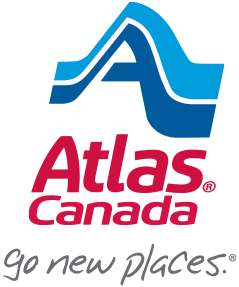Workforce Mobility in 2025: Moving People in a Changing World
This fall, the Canadian Employee Relocation Council (CERC) hosted its annual conference in Calgary, bringing together leaders to discuss the future of workforce mobility. At Atlas, we see firsthand how global trends translate into practical moving challenges. Here are four of the most pressing issues shaping workforce mobility today — and how they come to life when people are on the move.
Compliance and Policy: Where Regulations Meet Moving

Mobility policies are growing more complex, especially when it comes to cross-border and international assignments. Immigration, customs, tax obligations, and duty of care all play a role in how employees and their families relocate.
For Atlas, compliance isn’t an abstract policy discussion — it’s the day-to-day work of ensuring goods clear borders, documents are accurate, and nothing delays an employee’s start in a new role. A well-managed move keeps businesses running smoothly and employees confident as they settle into their new locations.
Employee Experience: The Human Side of Relocation

Moving for work is one of life’s most stressful experiences. Beyond logistics, a relocation can affect family routines, emotional well-being, and productivity on the job. Mobility professionals talk about “assignee experience,” but for Atlas, that experience begins when the moving truck arrives.
Our role is to reduce uncertainty: by providing options like guaranteed delivery dates, secured containerization, and real-time tracking so employees and families know what to expect. A smooth move doesn’t just get someone from point A to B — it supports retention, performance, and a positive relationship between the employer and the transferee.
Sustainability: Moving Responsibly for the Future

Organizations across Canada are looking at how their mobility programs align with environmental and social responsibility goals. Moving is part of that equation.
Atlas is focused on reducing the impact of relocations by optimizing routes, modernizing fleets for fuel efficiency, and supporting initiatives like Tree Canada and Food Banks of Canada, where we help support the communities where we work. For companies and governments with ESG priorities, a sustainable moving partner is no longer optional — it’s an expectation.
Technology: Bringing Clarity and Transparency to Moving

As mobility programs adopt digital tools, moving must keep pace. Technology enhances every stage of the relocation journey, from planning to delivery.
Atlas uses virtual survey tools to provide quick and accurate estimates, integrates with corporate systems for better visibility, and offers real-time tracking for shipments. These tools don’t replace the personal service that moving requires — they add clarity, reduce stress, and build trust with both employees and employers.
One Goal, Many Clients: Private, Corporate, and Government Moves

While the contexts differ, the core needs of private clients, corporate teams, and government organizations are connected.
- Private clients want reassurance that their belongings will be safe, their pets and vehicles can travel with them, and the process won’t be overwhelming.
- Corporate clients need relocation services that support workforce strategies, minimize downtime, and align with ROI goals.
- Government clients require scalable, policy-compliant solutions that are secure and dependable.
For Atlas, each of these moves is part of the same mission: helping people transition smoothly into new opportunities.
Looking Ahead
Workforce mobility is changing rapidly, shaped by compliance demands, employee expectations, sustainability goals, and digital transformation. But no matter how policies or strategies evolve, they all depend on one thing: moving people.
At Atlas Van Lines Canada, we stand at the point where mobility planning becomes reality. Our role is to make every move — whether across the province, across the country, or across the border — a seamless part of the workforce mobility journey.
